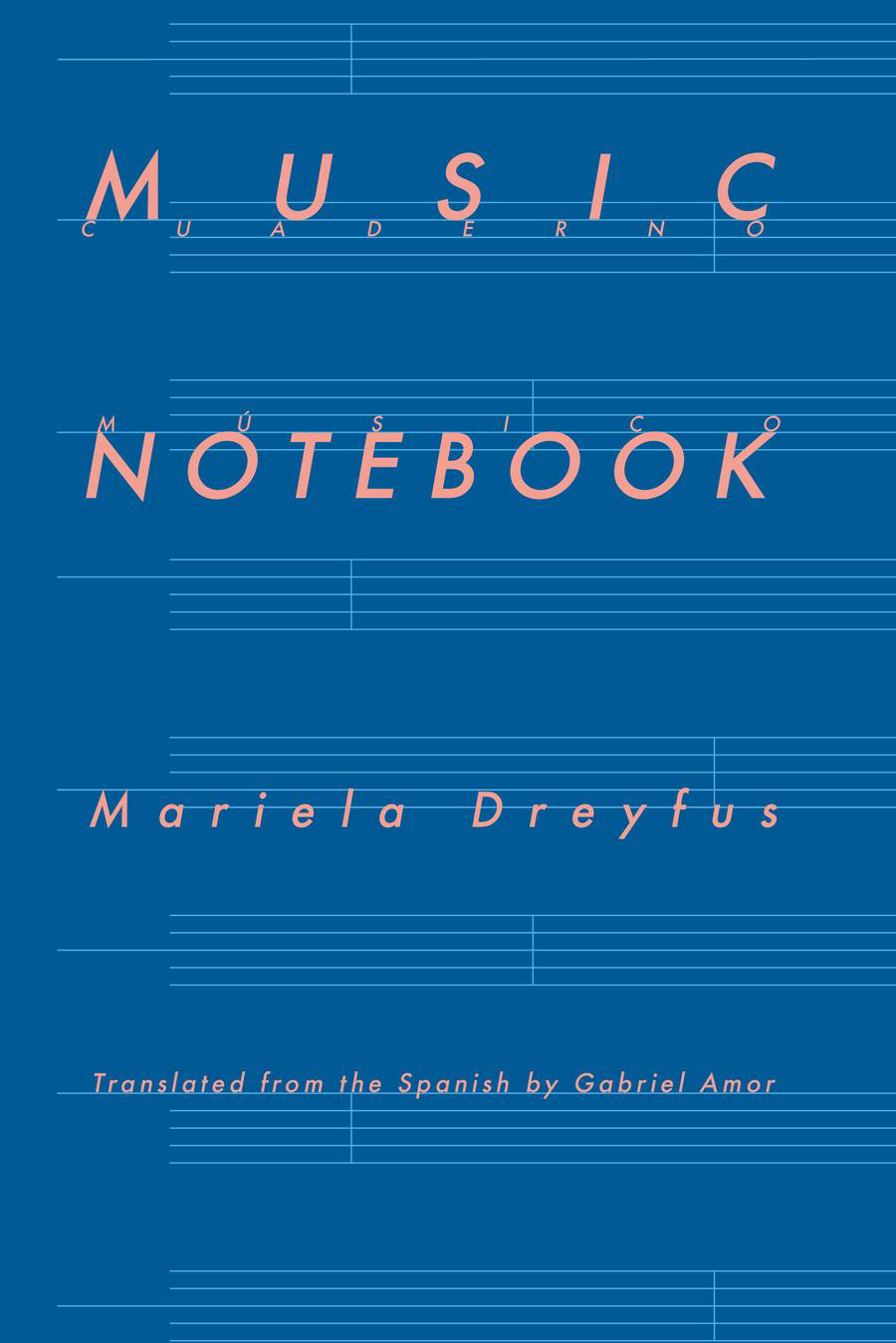Phoenix: Cardboard House Press. 2023. 100 pages.
 Music Notebook is an unreliable collage. In many ways, it works as a bildungsroman, the making of an artist who moves between desire, motherhood, and death. It opens on a stillborn to focus on the fracture between identity and symbol that marks so much of existence as a woman, and the sharp and delicate translation by Gabriel Amor only highlights this break.
Music Notebook is an unreliable collage. In many ways, it works as a bildungsroman, the making of an artist who moves between desire, motherhood, and death. It opens on a stillborn to focus on the fracture between identity and symbol that marks so much of existence as a woman, and the sharp and delicate translation by Gabriel Amor only highlights this break.
Dreyfus’ poetry is just as powerful in translation as in her native Spanish, and through the incredible work of Cardboard House Press, it is great to see her verses reach a new audience.
From the learning of words in “The Word Journey,” already tinted with censure—“quit breeding any more fury”—to the conscious intent to write in “Rosemary and Bougainvillea”—“I am 17 / years old I am alive in my purse I carry some ruled sheets nicotine I know I should start to write”—you can see an evolution that grows into the letter directed to Parra del Riego in a journey in and of itself. There is a path from writing as something that bursts to writing as a confession enmeshed in rhythm, a letter of intentional direction.
In that sense, “The World Journey” feels very much like an Ouroboros of the book. What starts as a dreamy reminder of childhood and family becomes a summoning of the early rage of the poetic voice among the constraints of image: the “gorgeous dialect” of a great-grandmother addressing her bad temper, “writing so forcefully in that notebook you will surely / dislocate your middle finger inventing your own violent / semantics.” This dynamic of nostalgia, dreaminess turning to the page birthing ink, turning to the “naked word, the gravely wounded word” is a constant motif through the book, which delights in tearing up imagery.
“From the stone of madness and inherited malaise, meaning collapses only to birth more ink, a voice that sings and continues.”
Argentine artist Luciana Pinchiero’s exhibit, Bad Posture, reflects on the female body in interaction with performance and the gaze: classical sculptures come together with contemporary cuttings, in collages that open the liminal space between subjectivity and object. Her work illuminates a queer interaction between women and the eye of the beholder. This tense chemistry echoes too in the build-up, the highs and lows of becoming a fully-fledged creature of Music Notebook. The postures in this poetry book are ever leaning, ever dissatisfied, ever sensual, and it plays upon the gazes it experiences.
Poems like “Rosemary and Bougainvillea” and “Girls Who Play That Way” have a constant sense of displacement, a self that is simultaneously deflecting and reflecting others. The playfulness of desire and pleasure in “Girls Who…” is a relentless rhythm that pulses, but the discovery of one’s own body and sexuality that opens the piece is tainted with fear and the dynamic of gazes felt upon the body, “as though recognizing in the mirror / the growing dimension and hormonal / rampage even of the desire and were / lulled by fear on those afternoons.” For Picchiero, the contrast of the gaze is about the narratives imposed upon bodies, while for Dreyfus, it is a matter of never forgetting the mirrors, the judgment “fiercely demanding / don’t you know that girls who / play like that go straight to hell?”
This element of deflection also builds through family, through dysfunction, and the way in which much of Music Notebook is a cloudy haze that becomes piercing, landing its thorny syntax into the reader’s hands. From the stone of madness and inherited malaise, meaning collapses only to birth more ink, a voice that sings and continues, playful and powerful, and wordsmithing.





